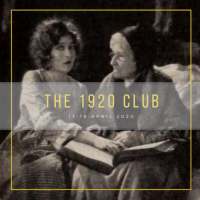In the Wake of the Plague: The Black Death and the World It Made
Norman F. Cantor
Harper Perennial, 2001
245 pages
Talk about topical! Because I spent 16 years doing microbiological research, I have been interested in infectious diseases for a very long time, and I buy books on that topic whenever I unearth them in some dusty corner of a used book store. So, given the current covid-19 pandemic and lots of time, I grabbed this one off my shelf.
Let me say right off the top: this book will not help you to understand our world in the midst of the coronavirus pandemic. It can, however, help you to appreciate how far modern medicine has come in fighting infectious disease epidemics.
Cantor uses stories of historical individuals from the aristocracy, the gentry, and the peasants to personalize the devastation caused by the Black Death in the 1400s in England. I highly recommend looking at a listing of the kings and queens of England during that period. Much of the book involves the English court scene and I was totally lost without knowing the families involved. I found Wikipedia's
"List of English monarchs" extremely helpful. I also copied out the relevant parts on paper so I could check back now and then. This in not to be taken as a flaw in the book! What the rulers were doing at that time had large implications for how the common folk were affected by the Black Death. And most of us just don't have a handle on royalty of the Middle Ages.
The book is structured in three parts. "Part 1 Biomedical Context" has an overview of the book and some discussion about the cause of the Black Death. There is a very interesting question raised: was it bubonic plague or was there another microbe involved?
In "Part 2 People", the longest section, he discusses what he calls the "microscopic closeup perspective" on the disease. He shows the many effects this disruption of society had on lawyers and property law, on women of the gentry class, and on science and religion. Interestingly he mentions anecdotal evidence that gentry males were hit harder that their womenfolk, a situation reflected in current covid-19 data.
"Part 3 History", the macroscopic perspective, has a fascinating discussion of alternate theories of where the plague came from and how it spread: other microbes? other vectors (animals)? outer space? The final chapter "Aftermath" has a wide-ranging discussion of the many ways the Black Death changed European society in the Middle Ages. This is followed by a bibliography divided into various topics brought up in the book. If you get seriously intrigued by this plague or this era of European history, you will find lots of further reading.
I am glad I read this book as it has given me a better picture of life in the European Middle Ages during the Black Death. And it makes me profoundly grateful for modern science and medicine.
This is part of my reading for the
2020 Mount TBR Challenge.
FURTHER READING
Plagues and Peoples by William H. McNeill (1976)
Upon its original publication, "Plagues and Peoples" was an immediate critical and popular success, offering a radically new interpretation of world history as seen through the extraordinary impact – political, demographic, ecological, and psychological – of disease on cultures. From the conquest of Mexico by smallpox as much as by the Spanish, to the bubonic plague in China, to the typhoid epidemic in Europe, the history of disease is the history of humankind. -from the publisher
I loved this book which I read when it was new. Might be time for a re-read!















